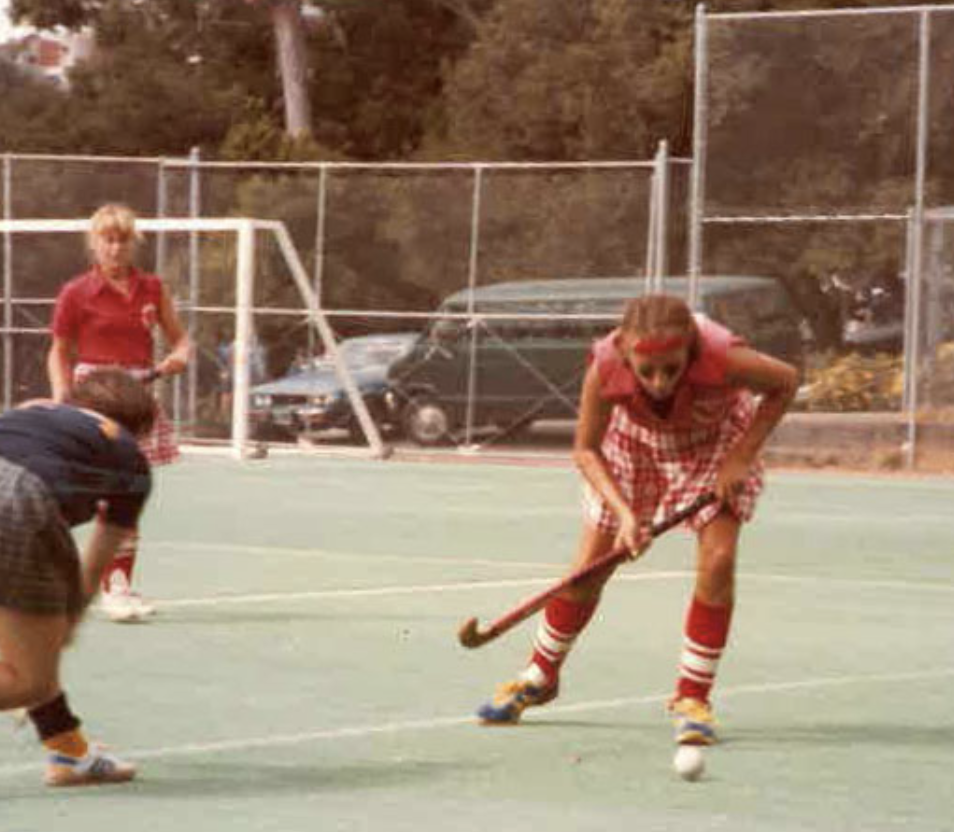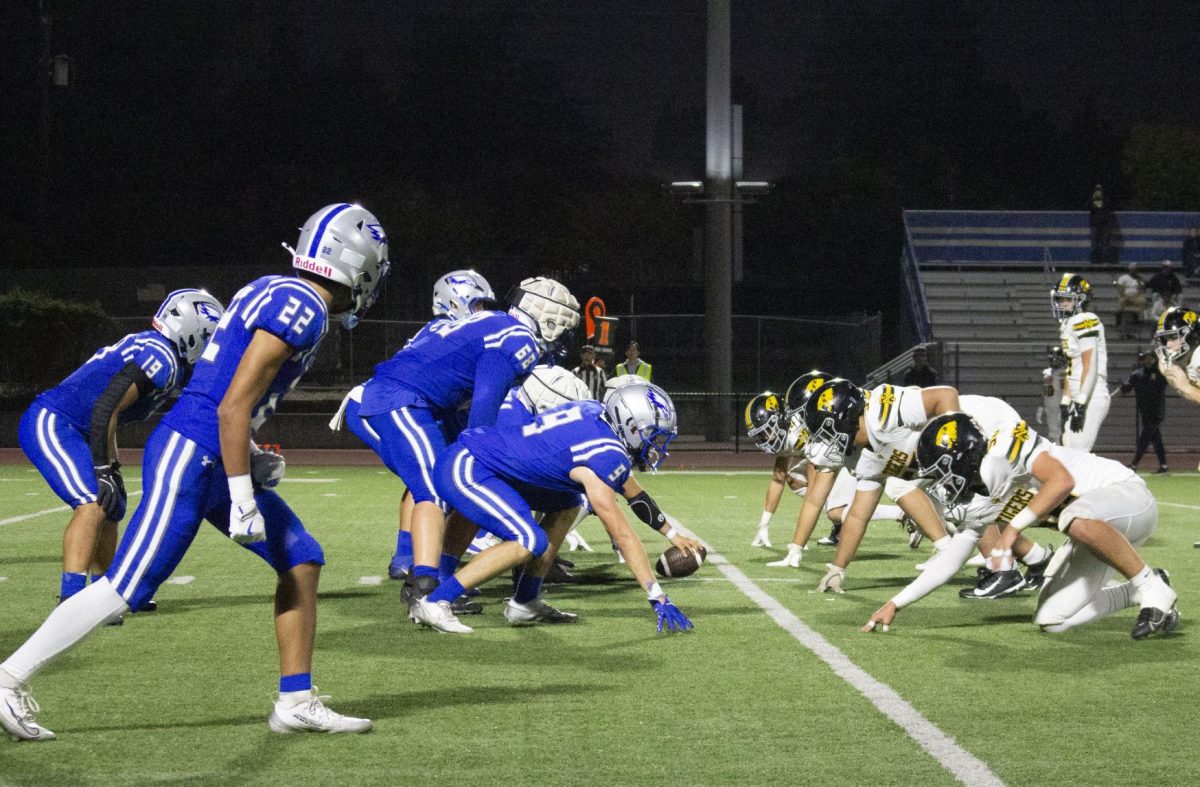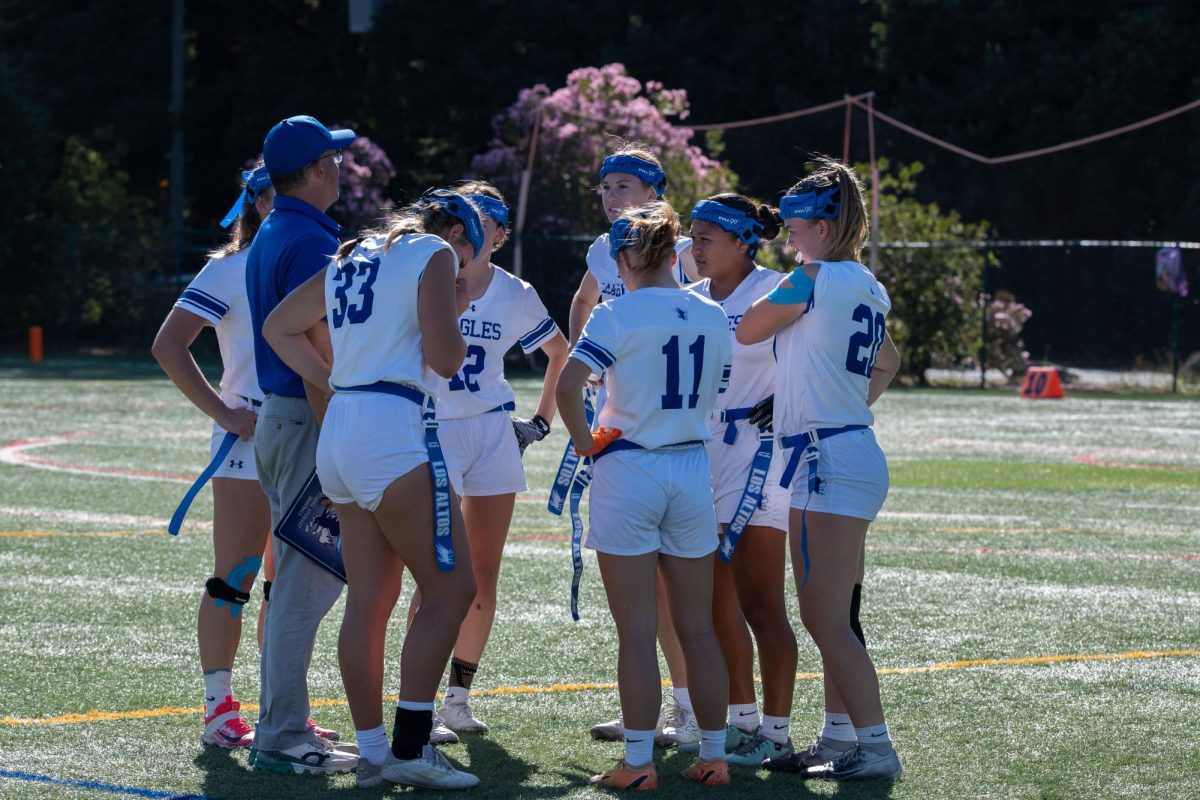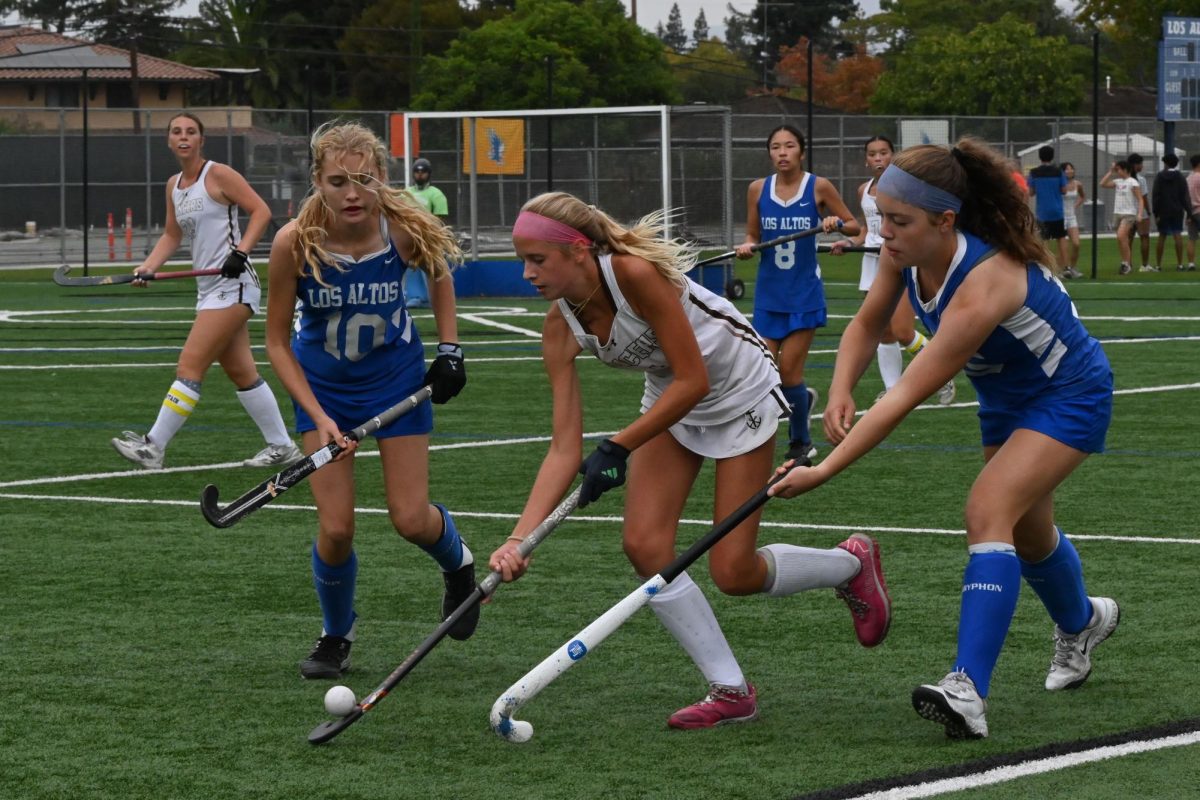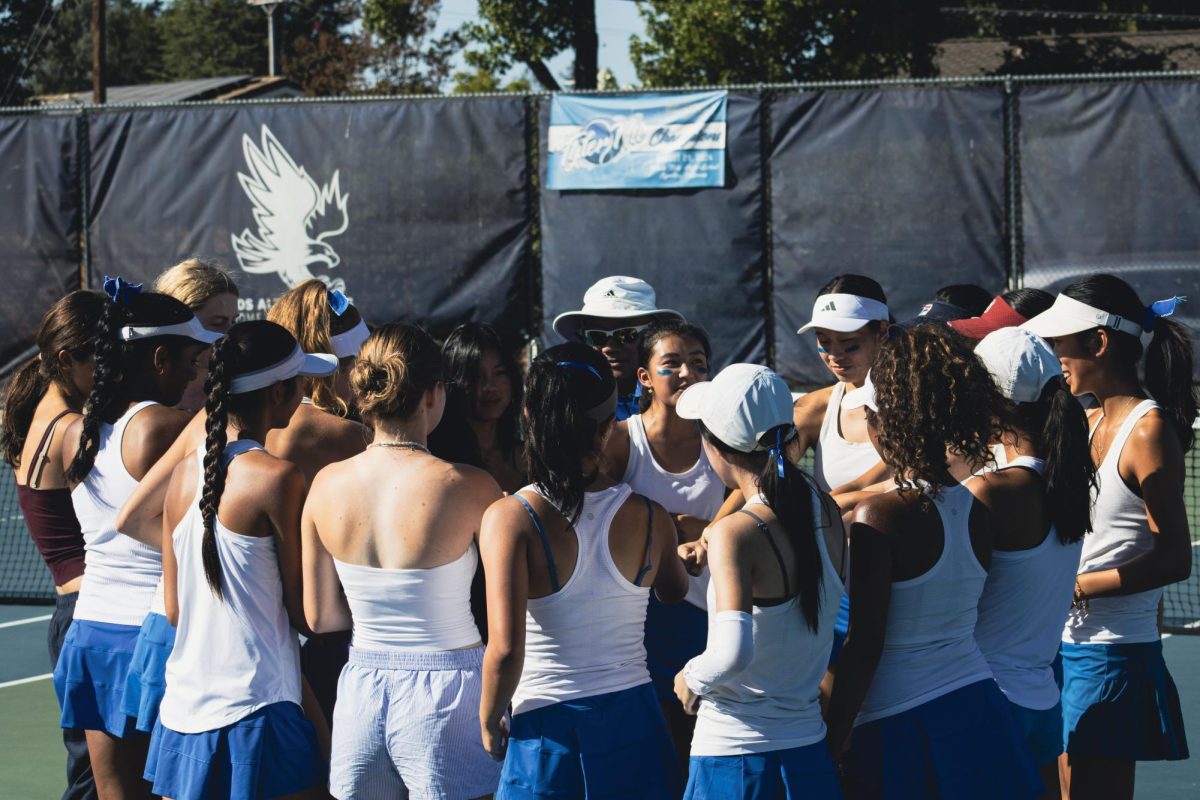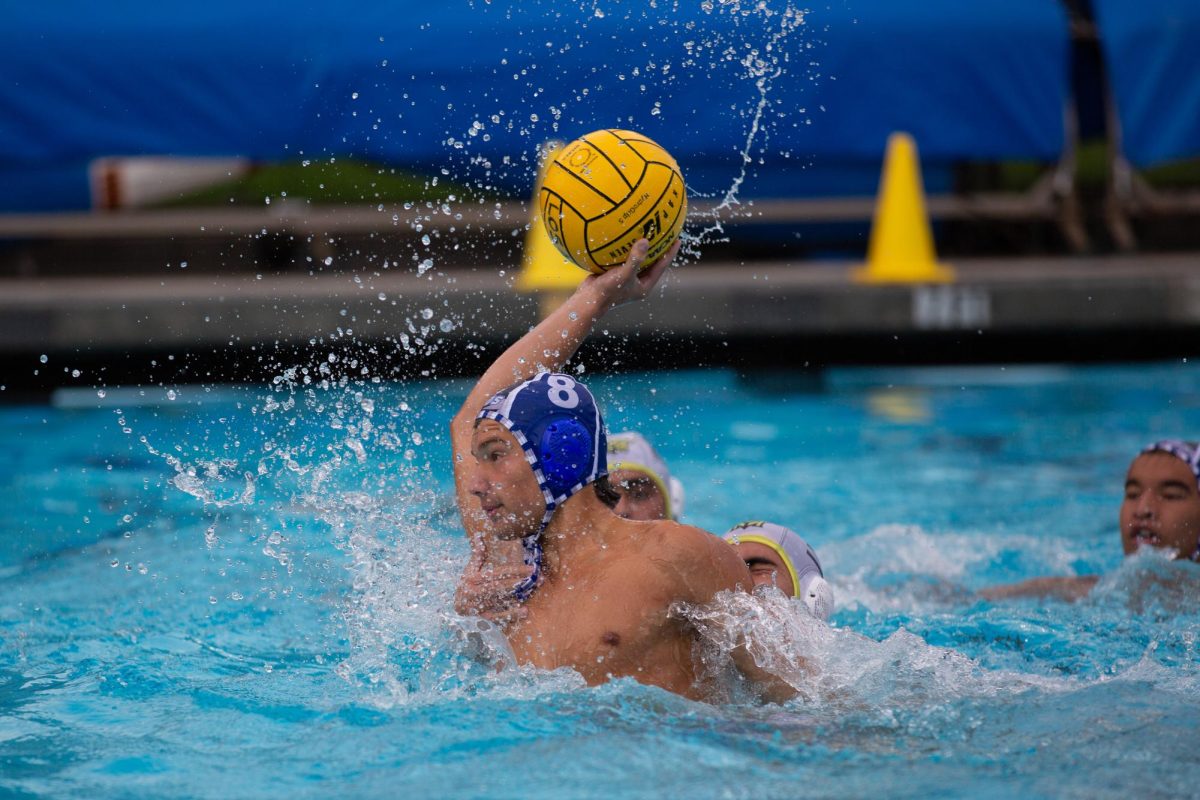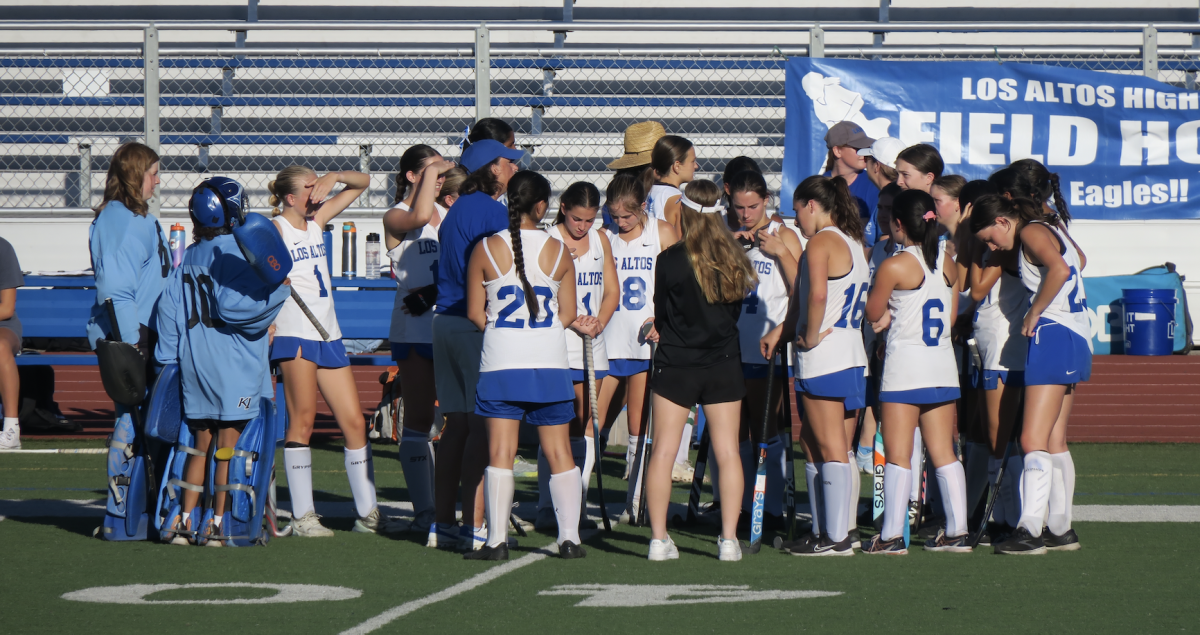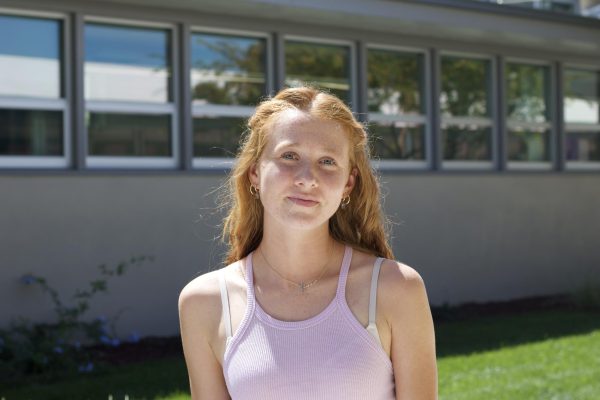After leaving home her junior year to attend a Dallas boarding school, field hockey Head Coach Mary Donahue had a selection of fall sports to choose from. Her decision to pick field hockey would change her future athletic career forever.
The game’s simple nature drew Donahue in — running and hitting a ball hard into a goal. She spent most of high school learning how to play, bonding with her team, and helping them make league playoffs. It was then that she knew she wanted to continue playing field hockey in college.
“Playing in college was different back then because there were opportunities to compete in, college even if you were still learning to play the sport,” Donahue said. “
Donahue walked onto the field hockey team at Stanford University. The squad was split into lower and higher-level teams, with Donahue starting her first two years on the lower squad. Even so, according to Donahue, adjusting to college athletics was hard.
“College field hockey was more rigid,” Donahue said. “We had to start doing conditioning, weight work, more running, but all of it was really exciting. We traveled and had a whole other level of sports experience.”
After starting on the lower team, Donahue dedicated her summers to improving her field hockey game. While other students went home for the summer, Donahue and some friends stayed at Stanford to train their skills and condition. It paid off — Donahue made the top squad for the 1982–1983 season.
“You’re practicing a lot during your season, but the improvement is in the work you do outside of it,” Donahue said. “I put in the hard work, conditioning, and got a lot better.”
Leading up to her junior year, Donahue and her teammates arrived three weeks before the rest of the school for pre-season training. During those weeks, her entire life centered around field hockey: She had two to three practices a day, six or seven days a week. In the blazing summer heat, the team would run, work on stick skills, and lift in the weight room.
Donahue was now officially a Division I college athlete. She helped the team reach a 10–4–1 overall record and a 4–2 record in their conference. The team competed against schools up and down the West Coast, and though the team wasn’t good enough to qualify for NCAA Championships, they tied for second in the North Pacific Division Competition.
“The biggest lesson I learned at Stanford is you get out of sports what you put into it,” Donahue said. “Even if you make a little tiny step in a day when you’re doing something, whether it’s practice or in a game, that’s a big deal.”
After graduation, Donahue continued to play field hockey, practicing with the friends she had made for another 10 years. However, she didn’t start coaching until the Stanford head coach reached out asking for an assistant. That coaching experience led her to coach at LAHS in 2007, and to take over as owner of the San Jose Fly Field Hockey Club.
“My college experience taught me what I need to know to teach younger players,” Donahue said. “It’s about learning how to prepare for what you need to do on the field, and working with others to achieve your goals.”
Since then, Donahue has gained numerous awards: LAHS Coach of the Year in 2013 and 2019, And CCS Honor Coach twice in 2016 and 2022.

“Coach Donahue makes field hockey feel like a safe haven for many people,” captain senior Maddie Ross said. “She’s always willing to listen to you, is super approachable, and she’s formed a strong bond with many of her players. She’s someone everyone feels really open with.”
During Donahue’s time as head coach, the field hockey team has achieved a third-place finish in CCS, and made it to playoffs in back-to-back years. According to Donahue, her primary focus is ensuring every athlete who comes through the field hockey program says it was a positive experience for them.
Donahue spent her life playing and coaching field hockey, guiding many of her athletes towards a college field hockey future. According to Donahue, coaching has been the best part, as she looks back on her career, since it’s all about athletes who compete for the right reasons.
“For anyone who hopes to continue their sport in college, I think it’s all about what you do in the off-season,” Donahue said. “You also have to want to do it. Don’t just do it because you’re supposed to, but because you’re disciplined enough and want to put in the time and energy to improve yourself.”



